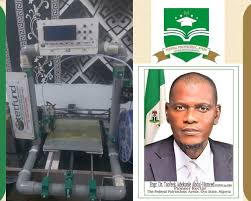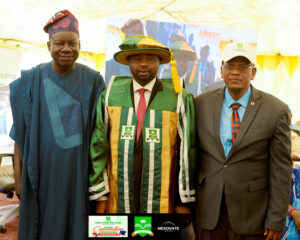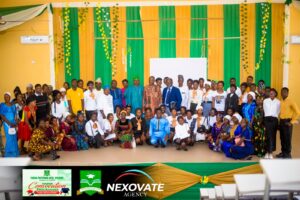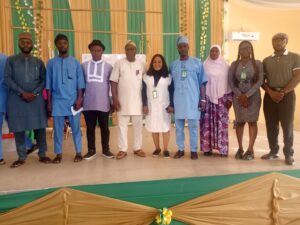
The Federal Polytechnic Ayede, Oyo State, says its new locally produced three-dimensional (3D) printing machine will revolutionise product packaging and enhance research commercialisation.
The Head of Department, Electrical and Electronic Engineering, Engr. Oluwafemi Tijani, said this in a telephone interview with the News Agency of Nigeria (NAN) in Ibadan on Tuesday.
Tijani said the 3D printing machine, produced by the institution’s Department of Electrical and Electronic Engineering, would address students’ challenge of poor packaging after executing their research projects.
It is reported that the 3D printing is an additive manufacturing process that creates physical objects from digital designs.
Tijani noted that many research projects designed by the institution’s students could compete favourably with imported gadgets if packaged properly.
According to him, the packaging components of finished research projects are either joined together with bolts and nuts or melted together with a soldering iron, making them unattractive.
This, he said, had denied the projects the deserved global market attention and commercialisation.
“All over the world, every technical and technology inclined institution or country is keying into the 3D printing technology to achieve seamless production and manufacturing process.
“The technology is an additive technology of producing items, systems and gadgets.
“Some phones, inverters, battery chargers, touch lights and other gadgets that we are importing are not rocket science because some of them can be produced locally.
“In engineering departments, many times, we have good projects that students embark on, but packaging has always been a major setback to their noble ideas.
“If a student designs and builds a robot, battery charger or good electrical system but with a rough or poor package, the efforts on such a project would not be properly appreciated or suitable for commercial purposes,” he said.
Tijani noted that the machine is capable of producing different neat and attractive packaging shapes.
He said the machine would serve as a source of motivation and support for students to produce tangible products that could be commercialised from school laboratories.
The HOD disclosed that the 3D printing machine was entirely produced at the polytechnic from locally sourced materials through the Tertiary Education Trust Fund (TETFund) Project Fabrication Grant.
He commended the institution’s Rector, Dr Taofeek Abdul-Hameed, for facilitating the process of securing the grant and for ensuring the project’s successful execution.
Tijani expressed his determination to train students, transferring to them the machine’s production methodology for further development.
“Our primary goal is to see the product from our laboratories meet up with market standards, generate revenue, and empower students, making them job creators rather than job seekers,” he said.
He called on the government to do more in the area of research project funding, noting that his idea would not have come to reality if not for the fabrication grant from TETFund.
Tijani noted that the project’s success had translated into many benefits for the students, the institution, and himself.
“There are many research ideas that would have turned around Nigeria’s economic status positively and brought self-reliance to the nation technologically, but many of them died in the laboratories due to the lack of research funding.
“For Nigeria to develop and be technologically self-reliant, the academia, government and society at large have roles to play,” he said.






